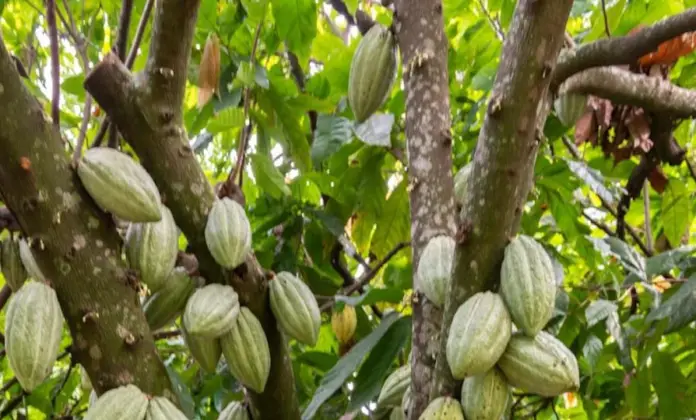Thousands of workers in Chiapas face grueling hours, low wages, and exposure to toxic agrochemicals to produce coffee, cocoa, and sugar that are exported to multinationals and markets in the United States, Belgium, Germany, Colombia, Japan, and Singapore, according to the report “A Bitter Reality: Labor Abuses of Migrant Workers in Sugar, Cocoa, and Coffee Production in Chiapas,” prepared by the Business and Human Rights Resource Center (CIEDH).
Mexico ranks 13th among the world’s largest coffee producers. In Chiapas, the industry is dominated by three companies belonging to large transnational corporations, which accounted for more than 87% of production and 81% of exports between 2018 and 2023: Exportadora de Café California, S.A. de C.V., a subsidiary of the German group Neumann Gruppe GmbH; Agroindustrias Unidas de México, S.A. de C.V.; and Cafés de Especialidad de Chiapas, S.A.P.I. de C.V., both subsidiaries of the Swiss multinational Ecom Agroindustrial Trading Corp. Limited.
The state also ranks as the second-largest national cocoa producer. Between 2018 and 2023, only three companies recorded exports totaling $248.51 million. Of these, Agroindustrias Unidas de México, S.A. de C.V., a subsidiary of the Swiss multinational Ecom, accounted for 99.6% of total exports and 99.7% of the revenue generated.
In the sugar sector, the document shows how the Mexican company Zucarmex, through its subsidiary Cía Azucarera La Fe, accounted for 97.4% of production and 66.7% of exports of this product.
Agricultural Wealth, Working Poverty
While Chiapas’ crops feed global markets, agricultural workers “face harsh working conditions and various forms of abuse within a highly informal sector,” such as excessively long workdays for low wages and insufficient food, the cost of which is deducted from their wages; lack of access to medical care or social benefits; exposure to agrochemicals; overcrowded and unsanitary housing; gender-based violence; forced labor; and child labor, with reported cases of modern slavery.
Among the main buyers in the coffee, cocoa, and sugarcane supply chain in Chiapas are large companies such as Nestlé S.A., The J.M. Smucker Company, Starbucks Corporation, Barry Callebaut Group, Sucden et DenRées S.A., and American Sugar Refining Inc. (Grupo ASR), all with publicly available due diligence policies applicable to their operations and supply chains.
Lack of Regulation
Agribusiness in Chiapas has a high rate of informal employment, mostly involving indigenous people living in poverty and migrants from Central America, primarily Guatemala, followed by Honduras, El Salvador, and Belize. In the Lacandon Jungle region, in municipalities with a majority indigenous population, 98.5% of agricultural day laborers live in poverty.
The report cites research from the National Autonomous University of Mexico (UNAM) that revealed that Guatemalan migrant workers on coffee plantations in Chiapas work in precarious conditions, with verbal contracts, no social security, no access to health services, no vacation time, and no Christmas bonus.
The main coffee and cocoa exporters publicly express their commitment to respecting human rights within their supply chains and have publicly accessible policies. Despite this, “labor rights abuses continue to occur in the sector in Chiapas, indicating a gap between policy and practice,” the report notes. “The sugarcane sector is even further behind, failing to even publish basic commitments on paper to respect human rights.”
This global trade network shows that exploitation in Chiapas is not an isolated problem, but rather a structural part of the international agri-food system. Therefore, the CIEDH emphasizes the need to adopt public human rights policies aligned with international standards, ensure transparency in their supply chains, establish effective grievance mechanisms, implement real labor inspections in the fields, and guarantee access to health services for workers.

Source: es-us.finanzas.yahoo




